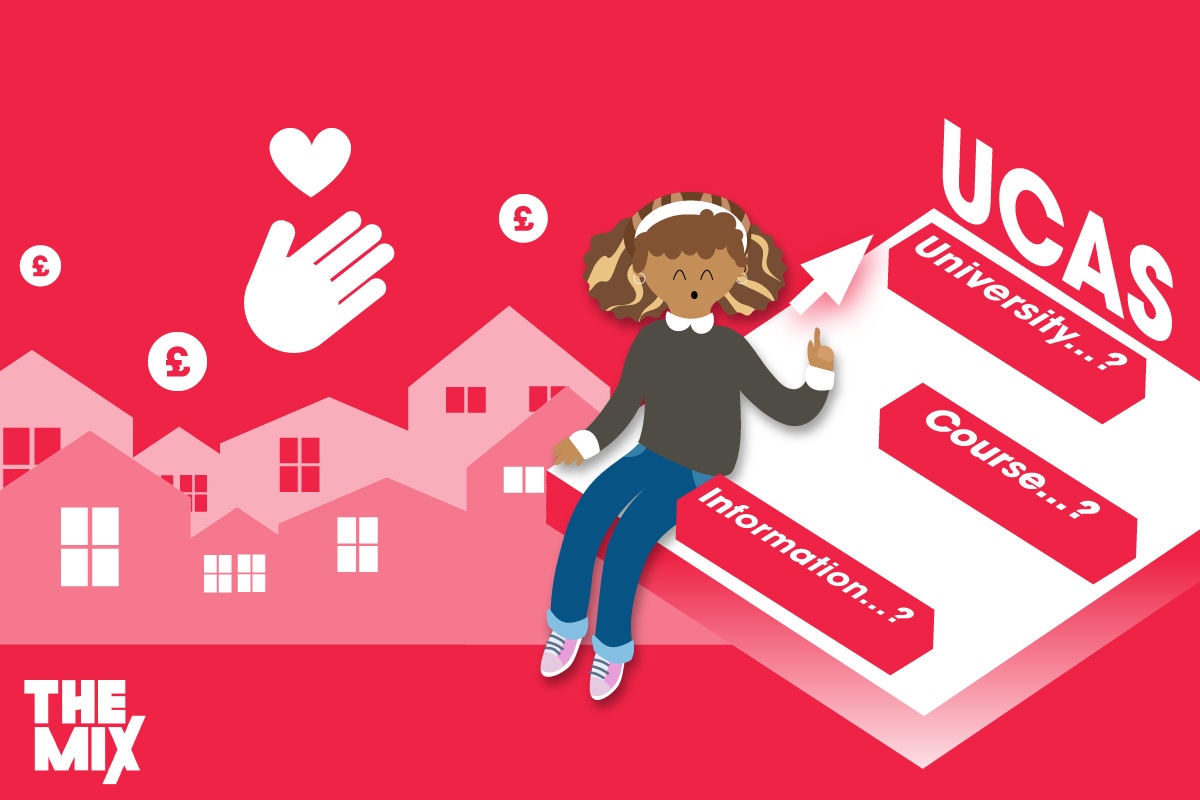UCAS application tips for young carers


My name is Megan, I am 22 years old and have been a young carer since I was 10. I help provide support for my dad, who developed a mental health condition when I was young, and care for my autistic brother and two younger sisters. Currently, I am a Communications Intern at Carers Trust.
My UCAS application story
In July 2021, I graduated from university with a degree in animation. I remember feeling worried, especially during the years before I went to university. All those questions: Should I go to university? If so, which one? Can I leave the people I care for? Ahh – and what about debt?
Year 13 was when all these questions filled my head. All my friends were making plans, writing their personal statements, and exploring what their university accommodation might look like on Google Maps.
My teachers pressured me to go to university, but I wasn’t ready to leave my family. At the time, my dad was only just recovering from a low period, and my sisters were so very young; they needed me. I then decided to delay applying to university and go to college to do a foundation degree. This gave me the time and space I needed to work out what course I wanted to do, where I wanted to study and gave me time to prepare my family for when I did leave home.
Taking a different approach to UCAS
I loved my foundation year. It allowed me to concentrate on one subject, gave me more free time, and was overall less stressful than my A-levels. This meant that I was in a much better headspace to start making decisions about my future.
Despite this, choosing a university was hard. My main issue was that I wasn’t able to go to open days. My dad suffers with his mental health and isn’t very mobile. I also have three younger siblings, one of whom is autistic. When I was looking at universities, my dad couldn’t look after my siblings for long periods of time on his own. My mum or I needed to be at home to care.
Therefore, I did all of my research online. I studied university websites and websites like The Uni Guide, The Student Room and UCAS to work out which universities to include in my UCAS application. Additionally, I made time to speak to my tutors, asked them about what they thought of different universities and if they knew of past students I could talk to.
Filling out the UCAS application
If you feel overwhelmed by the idea of filling out a UCAS application, please don’t worry, you are not alone. I found it tricky when my tutors were telling me that I should include extracurricular activities and write about my hobbies. The truth is being a carer has meant that I’ve had little time or money to go and play netball or do the Duke of Edinburgh Award, for example. When I look back on this, I realise that although I have not done these things like my friends, I had qualities and skills they didn’t. Being a young carer has taught me how to be responsible, manage my time and be resilient.
I ask you to think, what makes you different, focus on yourself as an individual, take your time, and lastly, it’s more than okay to reach out for extra support.
Tips for offers and interviews
Again, another scary time! I am pleased to say I received interviews from the universities I was most interested in going to. However, this did come with challenges. Lots of time and planning went into making sure my mum was able to drive me to my interviews.
I felt very intimated at first by the whole idea of having an interview. I believed others were better than me because of their education and experience. I understood how wrong I was in a group interview. The interviewer asked every one of us what inspires us. I spoke about my caring role and explained that people inspire me. Others like me who look after someone else that couldn’t cope without them, but also the people I care for. Saying this in my interview set me apart from my competition and gave me an edge.
I advise you to think about what makes you unique and what you’re passionate about. Keep this in mind when writing your personal statement and when you’re being interviewed. I promise you it will set you apart from your peers, no matter how weird and wonderful.
Some final words
Everyone needs to know what course they want to study, the deadlines for UCAS applications, meet the entry requirements, budget, write a personal statement, but there are many more factors to consider when you’re a carer. I hope you take away from my story that being a carer may present its barriers, but it’s also one of the many things that makes you, you.
If you need support as a young carer or young adult carer
Check out The Mix’s support and information hub for carers.
Read Katherine’s piece about being a student carer.
Take a look at the UCAS advice on applying for university when you’re a carer
Next Steps
- Carers Trust is a major charity for, with and about carers. They work to improve support, services and recognition for anyone living with the challenges of unpaid caring.
- Carers UK equips carers with practical help and advice. Meet others in the same position and get the support you need by joining Carers UK's online forum.
- Mind offers advice and support to people with mental health problems. Their helpline runs nine to six from Monday to Friday. 0300 123 3393
- Chat about this subject on our Discussion Boards.
By Holly Turner
Updated on 17-Dec-2021
Sorry, comments closed
No featured article














